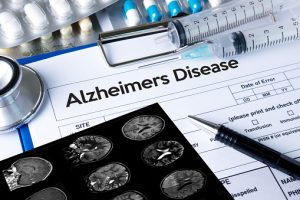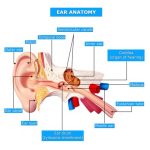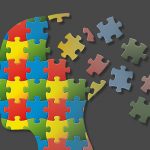 In case you missed it, here is Bel Marra Health’s weekly health news roundup, featuring information on dementia, Eustachian tube dysfunction, short-term memory loss, and how to calculate your heart rate.
In case you missed it, here is Bel Marra Health’s weekly health news roundup, featuring information on dementia, Eustachian tube dysfunction, short-term memory loss, and how to calculate your heart rate.
Wearable devices used to help detect dementia
Professor Rhonda Au of Boston University is developing a new way to detect the development of dementia and Alzheimer’s disease through the use of wearable devices. These digital devices are designed to collect data from individuals over a period of time which Au can then analyze with the goal of marking the small physical changes that signify the mental decline associated with Alzheimer’s and dementia.
Advertisement
The current lab-based testing methods are difficult and do not provide a complete picture of the progression of the illness, as cognitive decline can worsen from one day to the next. These existing lab tests only provide physicians with a small glimpse into their patients’ condition, and do not take into account smaller nuances that may signify the worsening of cognitive decline that can develop into preclinical Alzheimer’s. Au hopes to use these wearable devices to track the mental and physical changes that occur throughout the wearer’s daily life in order to identify any significant markers that are associated with the disease. Continue reading…
 Eustachian tube dysfunction in adults: Causes and natural treatments
Eustachian tube dysfunction in adults: Causes and natural treatments
Eustachian tube dysfunction affects the small tube that connects the back of the nose with the middle ear. This tube allows air to travel to the eardrum, as well as lets mucus drain from the middle ear, so that pressure on either side of the eardrum is maintained and sound can be properly transferred to the brain. When this tube functions incorrectly, it can impair your ability to hear, resulting in a condition known as Eustachian tube dysfunction, or ETD. Continue reading…
 Short-term memory loss: Causes and treatments
Short-term memory loss: Causes and treatments
Short-term memory loss is a case of losing memory over a short period of time. In most situations, long-term memory is not impaired. While most people associate short-term memory loss with aging and specifically dementia, there are other causes for amnesia-like symptoms; therefore, treatment is varied.
People who experience short-term memory loss might find that they can still remember how to play their favorite instrument, recall the names of everyone they have met, and what schools they attended, but they may not be able to remember what they were doing five minutes ago. There are cases where it is possible that brain damage has completely destroyed short-term memory. People often say they are “stuck” in a certain time period because they have a hard time forming new memories.
Advertisement
There are a number of reasons for short-term memory loss. It could be attributed to a medical condition, an injury, or other influences. Continue reading…
 How to calculate your target heart rate
How to calculate your target heart rate
Your target heart rate is meant to be your goal when exercising in order to ensure that you are working out effectively while not overdoing it. Target heart rates vary based on personal fitness level and may be different for each individual. To find out how to calculate and reach your target heart rate, continue reading. Continue reading…
 The healthiest foods in your kitchen
The healthiest foods in your kitchen
If you’re finding yourself confounded by the latest health food trends, then we’ve got just what you need. This simple list will detail some of the healthiest foods that may already be tucked away in your kitchen. Start enjoying the benefits of eating better right away by adding any one of these items to your next meal. Continue reading…
